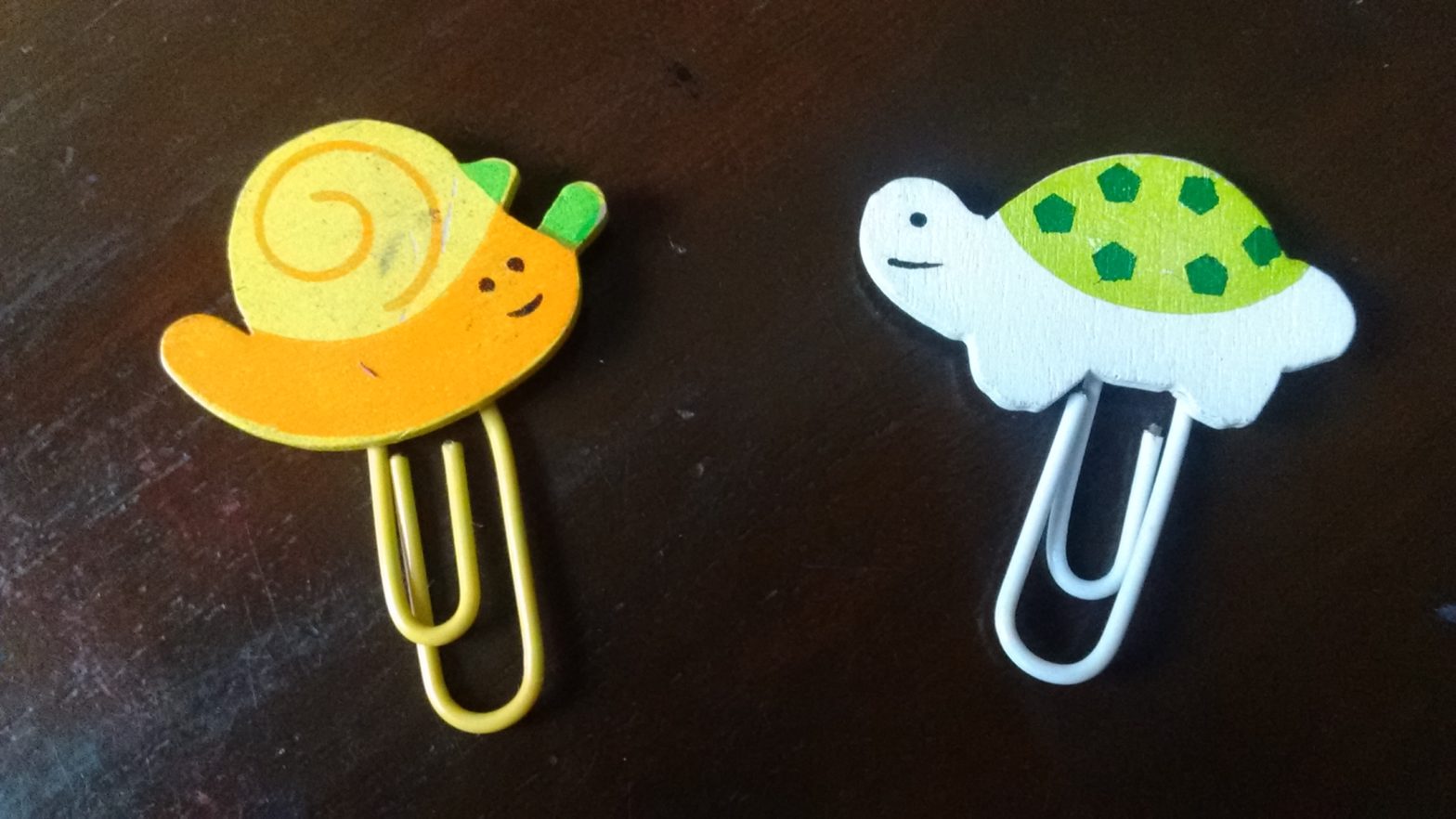After much deliberation, she decided which of the fancy paper clips I should have, and which she will keep for herself. So I got the snail, tortoise, airplane and duck, and my niece gave herself four other somethings.
Seeing the snail and the tortoise sitting beside each other, this question popped up in my head. I immediately asked her, “If there is a race between the snail and the tortoise, who will win?”
“Well… if the snail rests in between, and the tortoise keeps at it, the tortoise will win,” she said at first.
After a few imperceptible moments, she loud-thought further, with a brightness in her voice, “But the tortoise has already won once before. It might think, ‘I have already won with the hare’, and if it thinks that way, तब तो बस हो गया,” (then it is done for).
What a happy discovery it was for me! A seemingly complex notion like complacency came so naturally to her.
My niece is nine years old, in class four. I normally see adults around her teaching her this, that, and the other — matters of wisdom, discipline and shoulds. Methinks however, that a person is always a completely formed person. Even as a newborn when she does not know any of the words or math that humans have conjured, when she is just a slumbering poo-poo pee-pee machine, she already holds all the wisdom within her. This is the case not just for आजकल के बच्चे, but has always been so, with children of any generation — and will ever be, even when a person is seemingly lost in Alzheimer’s and dementia.
